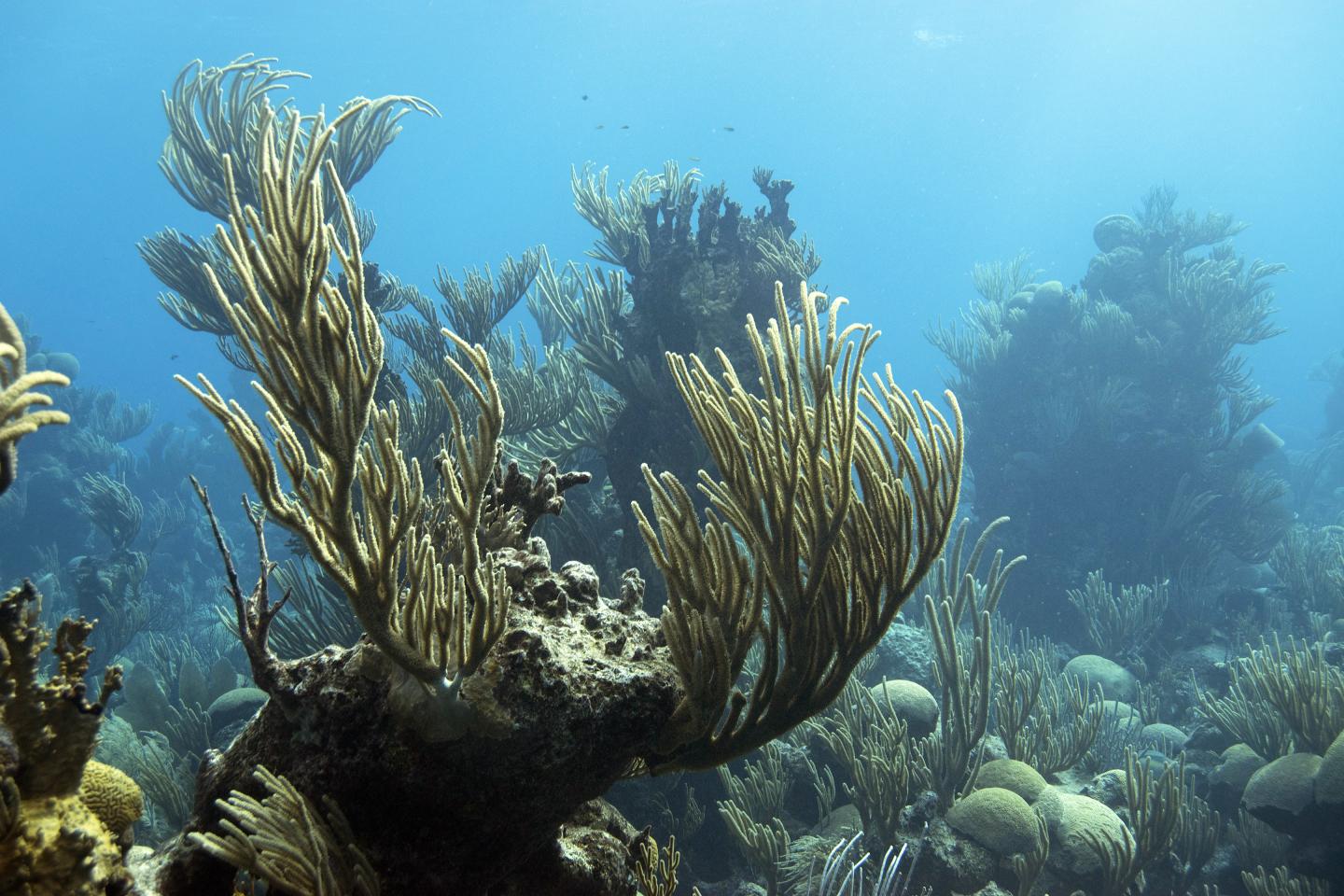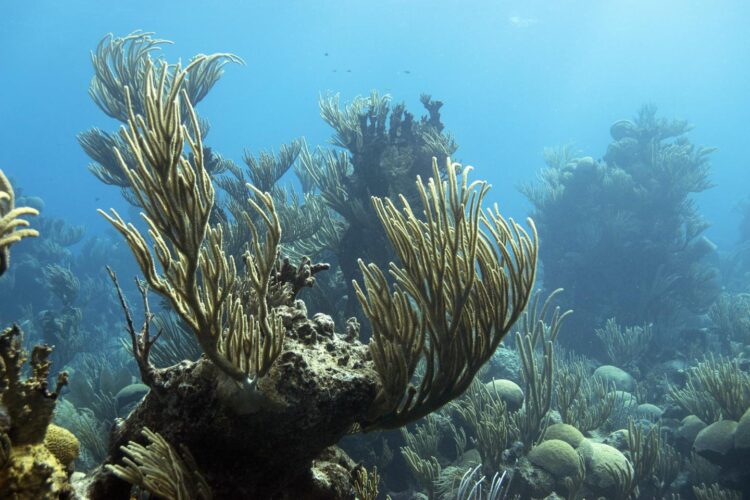New research quantifies light availability on coral reef ecosystems

Credit: Eric Hochberg
Earlier this year, Bermuda Institute of Ocean Sciences (BIOS) senior scientist and coral reef ecologist Eric Hochberg published a paper in the journal Coral Reefs that put numbers to a widely accepted concept in reef science: that materials in seawater (such as phytoplankton, organic matter, or suspended sediment) can affect how much light, as well as the wavelength of light, reaches the seafloor. This, in turn, impacts the ecology of organisms, including corals and algae, that live on the seafloor and rely on that light for photosynthesis.
“Given that reef ecosystems are driven by photosynthesis, there should really be a greater interest in light ecology on reefs,” Hochberg said. “In order to do that, you need to have numbers, so this paper is a start in that it generates the first reasonably large data set on water clarity on reefs.”
Along with Stacy Peltier, a former research technician at BIOS, and Ste’phane Maritorena, a researcher at the Earth Research Institute at the University of California at Santa Barbara, Hochberg collected and analyzed 199 water column profiles across the reefs and deep waters of Hawaii and Bermuda using an instrument called a profiling reflectance radiometer (PRR), or “water rocket.”
A 2.5 foot-long (0.76 meter) metal tube with fins, the PRR simultaneously measures the spectrum (intensity for each color of the rainbow) of light in the water column coming down from the surface, as well as the spectrum of light reflected up from the bottom. The instrument is tethered to a laptop by a data cable and deployed over the side of a boat, allowing scientists to monitor it in real-time as it drifts to the bottom, collecting data profiles along the way at a rate of 15 measurements per second.
With these numbers, Hochberg and other coral reef scientists can begin to conduct models to address fundamental ecological questions, such as how much light reaches the various reef zones (fore-reef, reef flat, and lagoon) or how ecological zonation on reefs might be driven by light absorption.
For example, while the outer reef area is generally more clear and allows more blue light to penetrate to deeper depths, lagoon areas are more turbid (cloudy) and allow more green light to penetrate to deeper depths. “Different colors of water reach different depths in different zones, which matters for the communities that live on the bottom,” Hochberg said. “The pigments that organisms have might change depending on light availability–not just how much light is available, but what color of light is available.”
###
The Bermuda Institute of Ocean Sciences is an independent U.S. not-for-profit marine research and educational organization with 501(c)(3) status and a Bermuda Registered Charity (#116).
Visit us in Bermuda or at http://www.
Media Contact
Ali Hochberg
[email protected]
Original Source
http://www.
Related Journal Article
http://dx.





